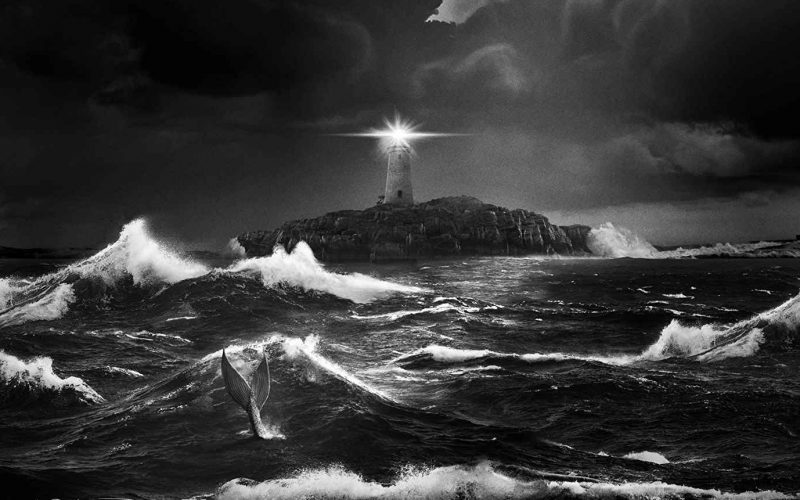The Lighthouse (2019).
Two men start to go mad when a storm maroons them at the lighthouse they’ve been manning for the past month. Whether it’s the mythic, allegoric depiction of the two characters and the things they see or the significance behind the choice of location itself – the lighthouse is, to put it bluntly, a penis – the film has depth that director Robert Eggers was guaranteed to deliver following 2015’s stirring English folk-horror tale The Witch.
The foghorn that warns passing ships of danger drones along menacingly throughout the entirety of the film, an unsettling sonic certainty that only builds upon a sense of growing insanity; it’s easy to succumb to the same feeling of isolation that the two men are doomed to wither away in. It’s impossible to imagine the film without its 1.19:1 aspect ratio and gorgeous black and white presentation. Along with the haunting, minimalist music, it’s a trifecta of impeccable technical prowess, a series of inspired filmic choices.
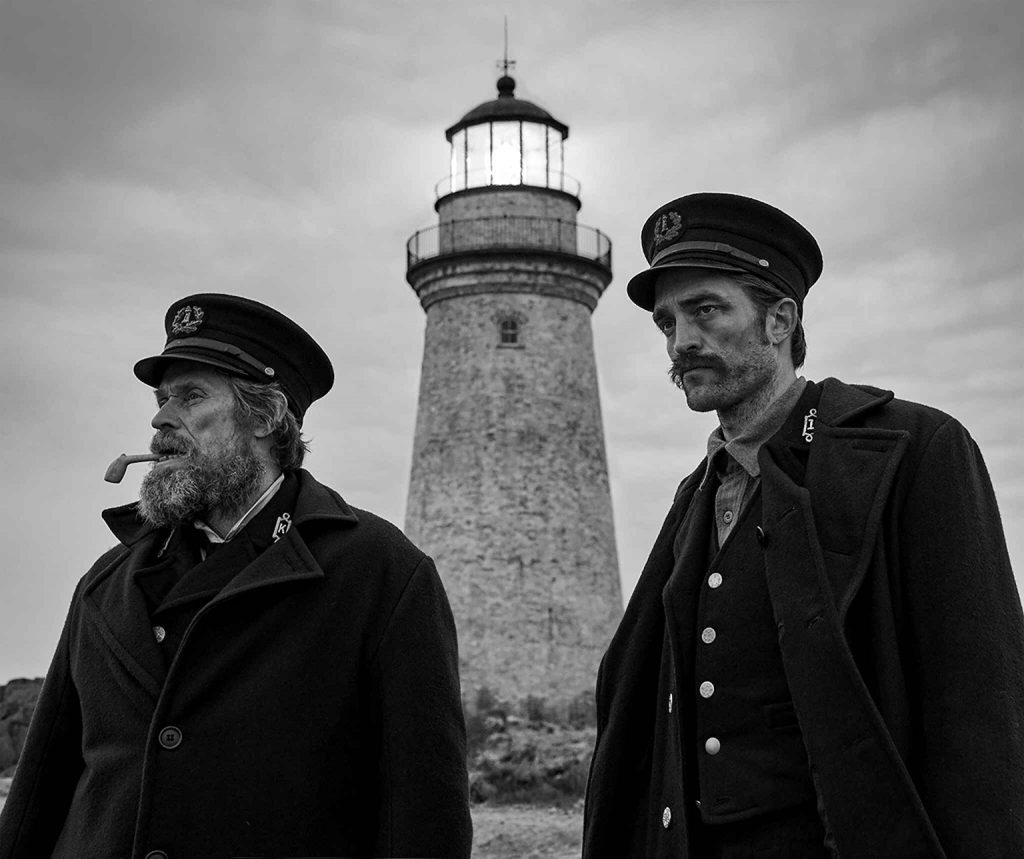
If The Lighthouse has a heart, it’s black and jagged and offers little comfort. Ephraim Winslow (Robert Pattinson) takes a contract job to serve four weeks as a lighthouse keeper alongside the old, irritable Thomas Wake (Willem Dafoe). The working dynamic is established quickly and without exception by Thomas; Winslow is going to do all of the grunt work, and he’ll never get to enter the lantern within which the light shines out to sea to guide passing ships. The relationship between the two is frustrating, funny, furiously confrontational, and everything in between. Winslow resists joining Thomas in his drinking habits, but the passage of time is a damning thing when you’re trapped at the edge of the world with a man you despise. The drink becomes a necessity.
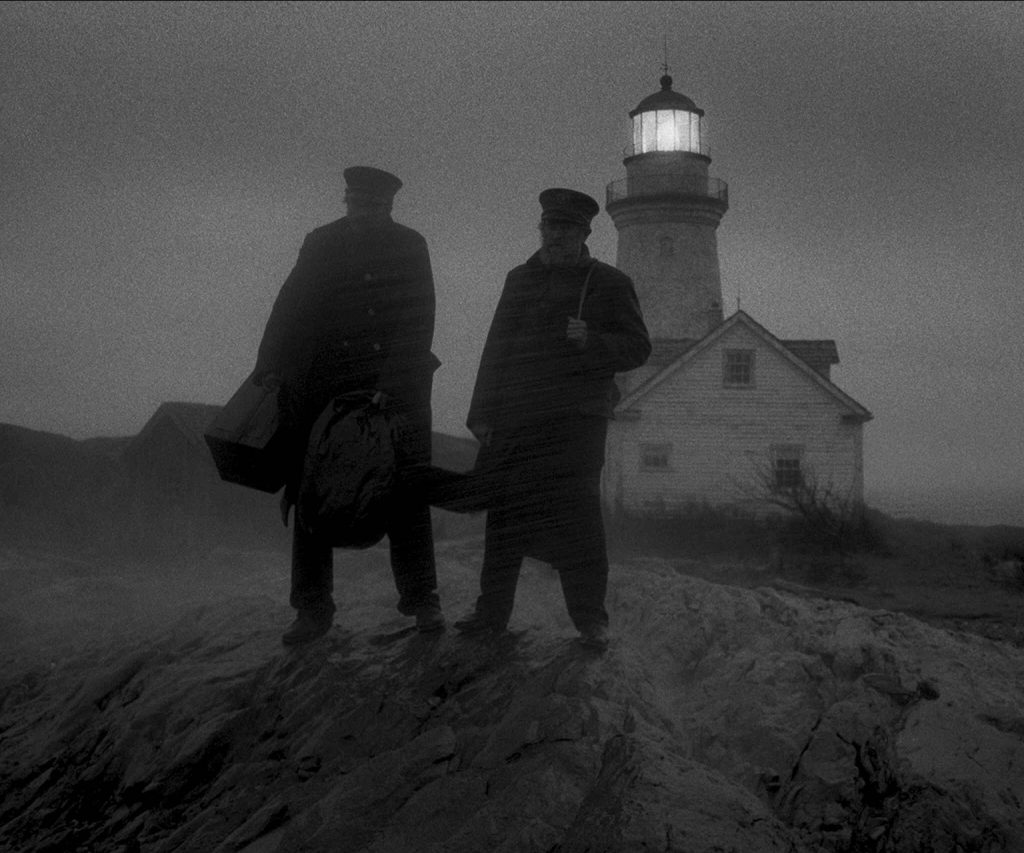
Thomas is quite clearly the antagonist of the film – at least early on. Soon enough the landscape itself seems to take this role for the most part. A one-eyed seabird harasses Winslow frequently enough that he eventually lashes out and murders it, a terrible omen according to Thomas who explains earlier that the gulls are inhabited by the souls of sailors lost at sea. The narrative and the weather shift at the same time; when the wind changes course, the storm settles itself in and the two men are trapped indefinitely. While Winslow experiences strange moments of visual ecstasy in the film’s first half, everything after the storm arrives is up for debate as to what, if anything, is real.
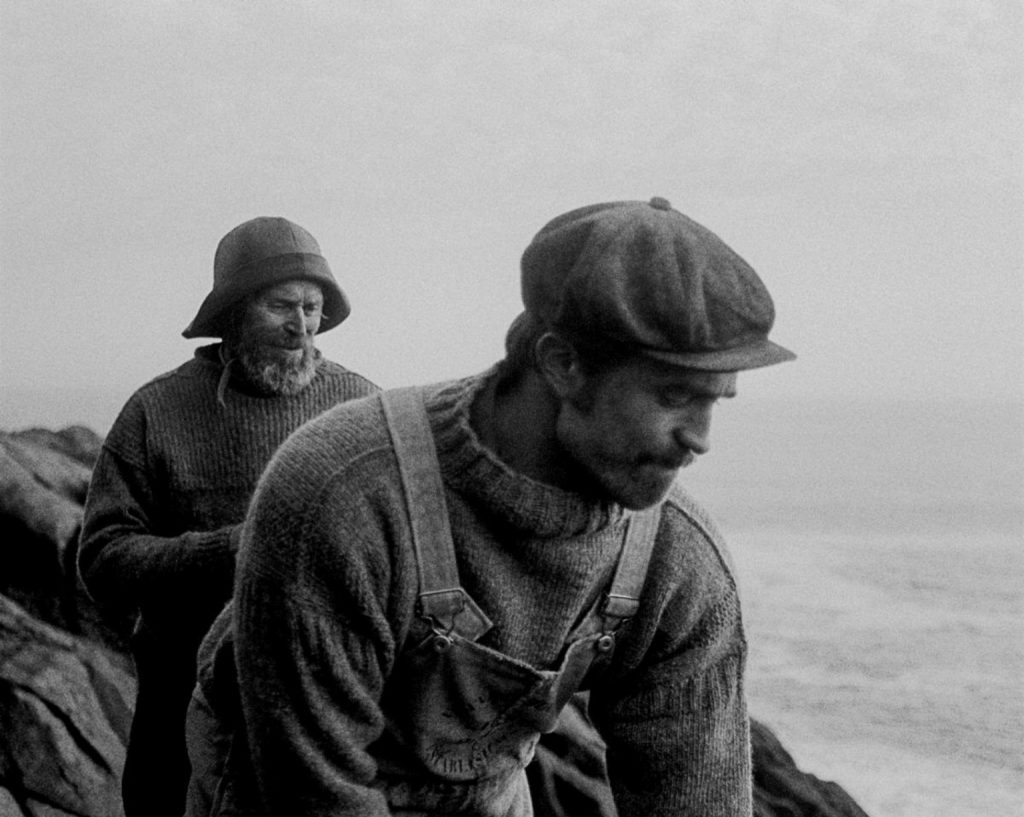
Thomas relishes antagonising the younger Winslow; the day after the storm sets in, Thomas tells Winslow that they’ve been stranded for weeks. The fog of ambiguity behind the things that Thomas says never clears. On their first day at the lighthouse, Winslow finds a small statue of a mermaid inside his mattress. He proceeds to masturbate furiously while clutching it later, and more than once. This is just a prelude to his discovery of an actual mermaid on the shore of the island, and she is both a grotesque and sexualised visual presence. The obscurity of their identities is an obvious theme; neither are quite as they seem but as they grow closer they also become increasingly adversarial toward one another. Alcohol, as is often the case, offers reprieve from their misery and, particularly in Winslow’s case, disdain for one another.
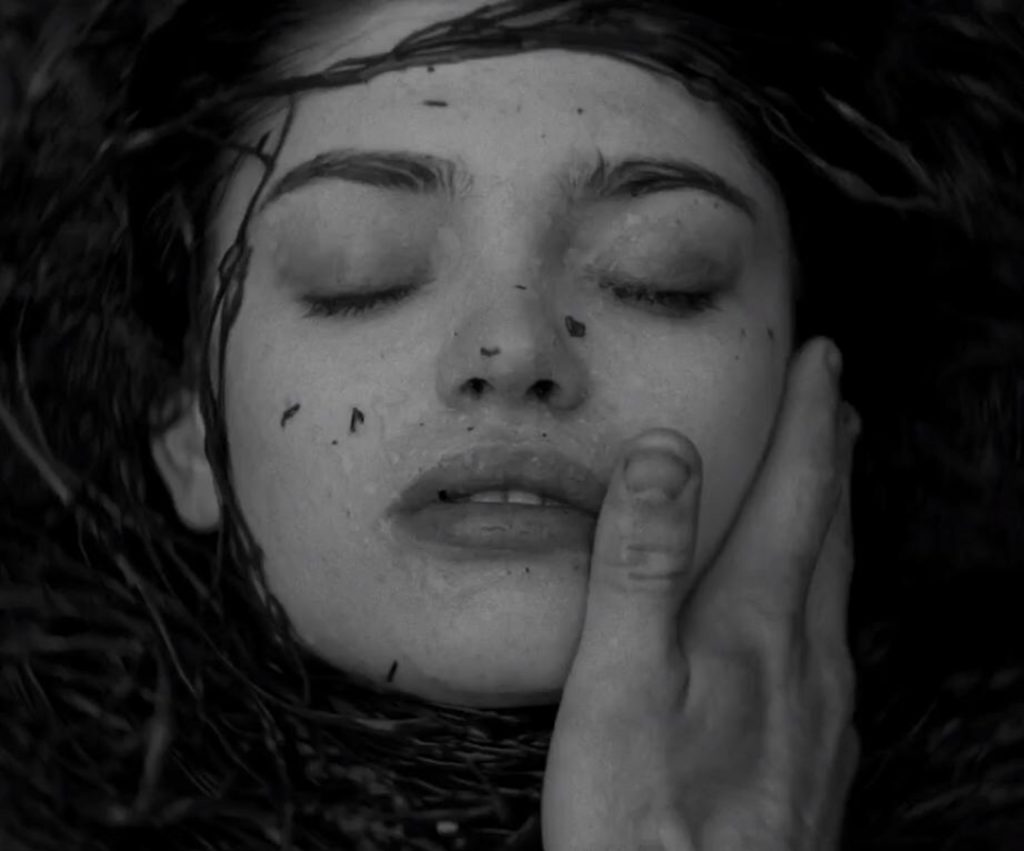
The two men couldn’t be more different; Thomas is where he belongs, the only thing keeping him from the sea itself being his useless leg, and Winslow is trying to find his place in the world, bouncing from job to job in his search. His ultimate dream is to find himself a plot of land somewhere where he can answer to no one. “The same old story,” Thomas says, or something of the like. Winslow’s dream is not so different from everybody else’s. But identity isn’t that simple; there’s gender and homoerotic subtext to spare, and enough admiration for and liberties taken with greek mythology (in particular surrounding the figure of Prometheus) to fill an endless dialogue. None of it would matter though if the film weren’t this magnificent, perpetually sinister sea-beast.
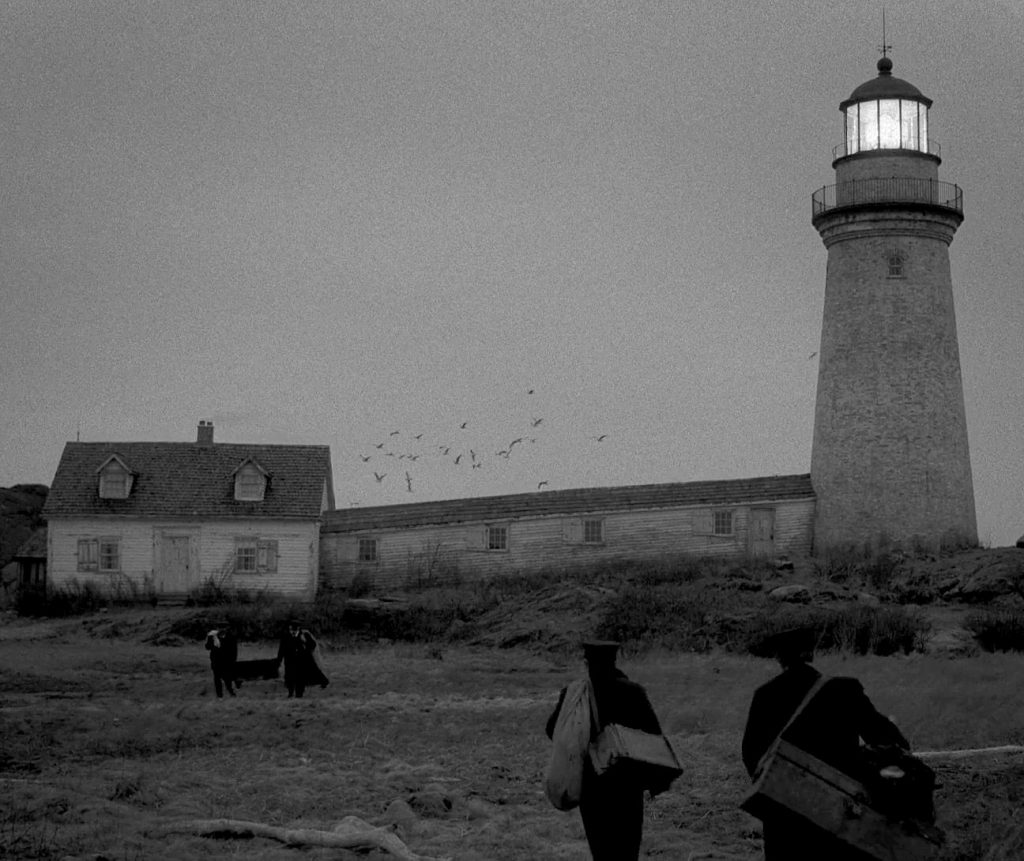
Its archaic presentation mingled with a dedicated technological effort and two performances as committed as you’re likely to see maintain The Lighthouse as an unmissable declaration of what movies can be. Unique visionaries aren’t categorically unique in and of themselves, but filmmakers like Eggers are important to the atmosphere of the cinematic landscape as it attempts to endure in the digital age. There will be failures along the way when commercial and artistic risks are taken. The Lighthouse is certainly not one of them.
Film ’89 Verdict – 9/10

